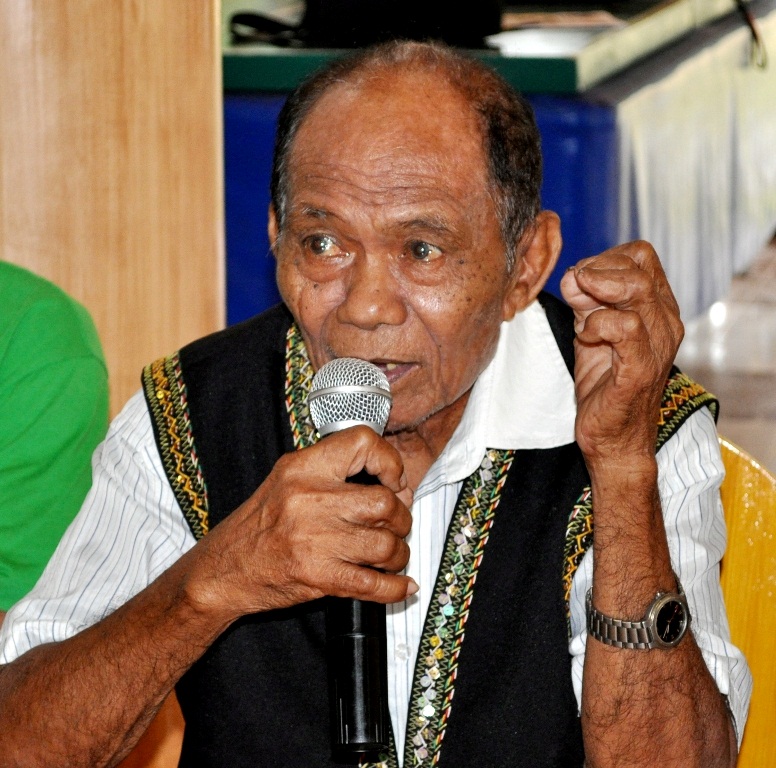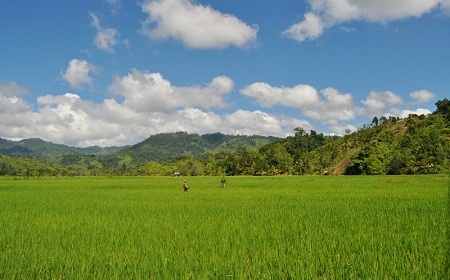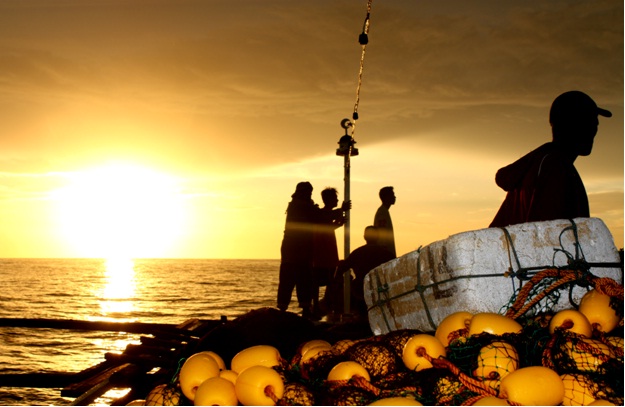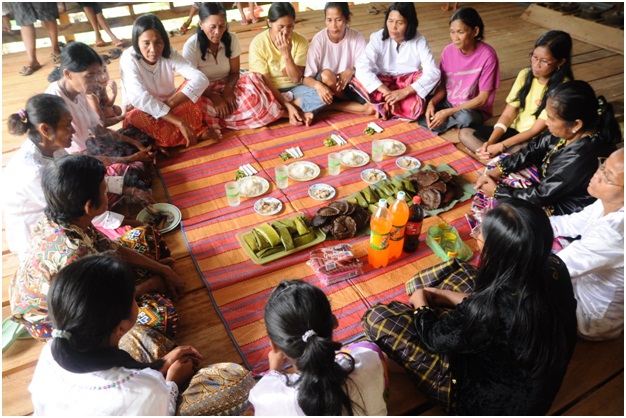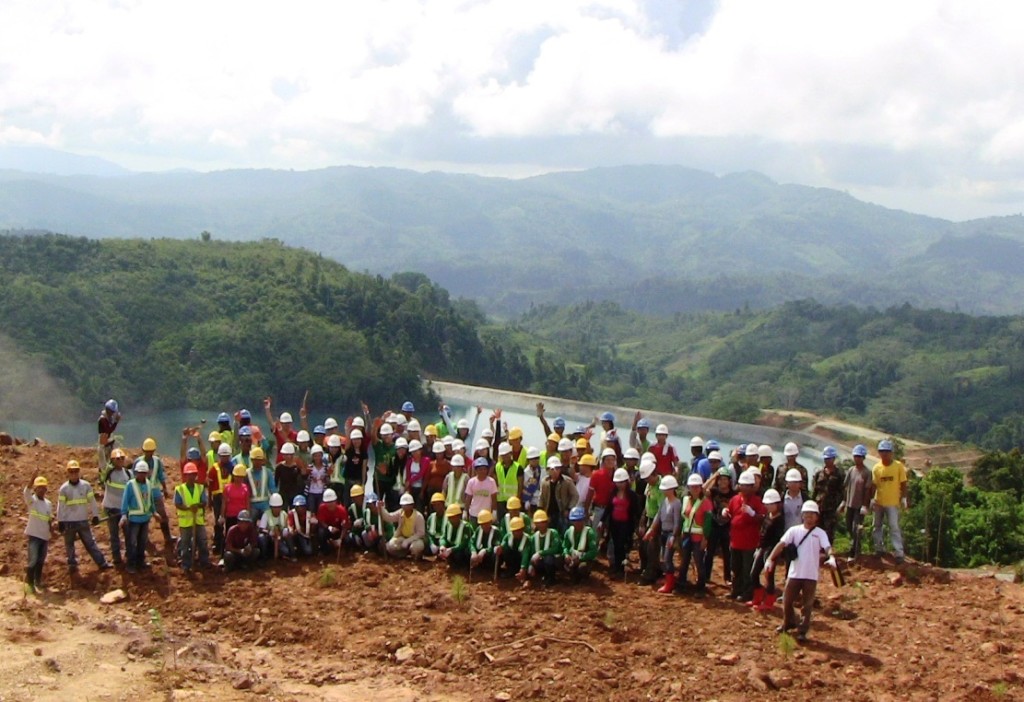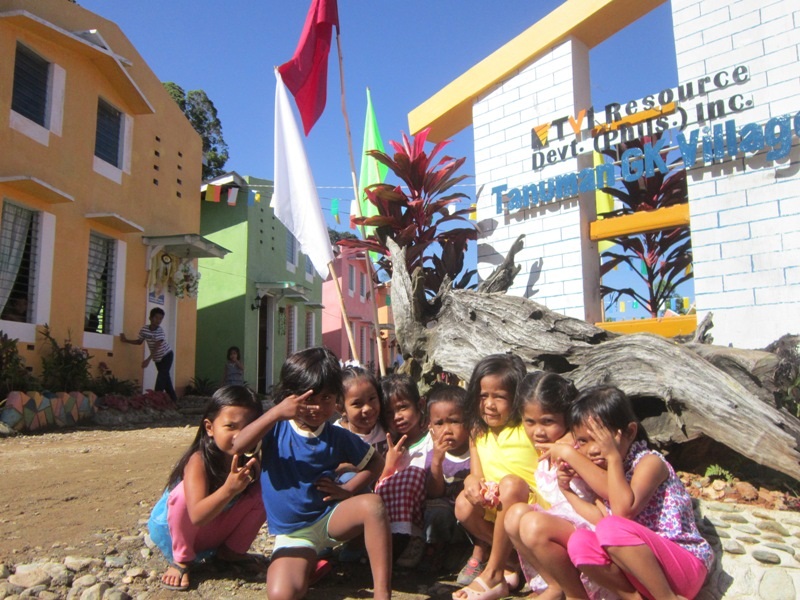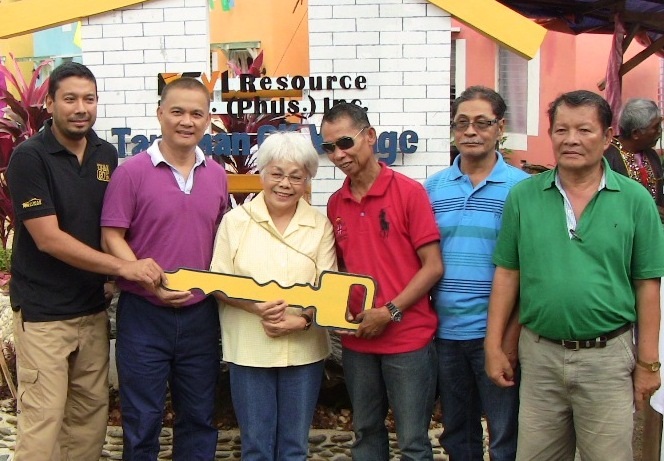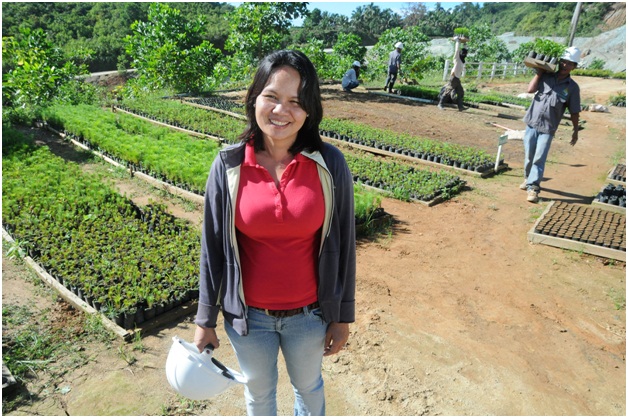Bayog, Zamboanga del Sur / February 2013 – Subanen cassava farmers in Bayog town expressed high hopes for a better future when they received financial assistance as beneficiaries of the Cash for Work program jointly sponsored by the provincial government of Zamboanga del Sur and TVI Resource Development Philippines, Inc. (TVIRD). In a turn-over held recently in Barangay Kahayagan, 400 farmer-beneficiaries each received their financial assistance and farming implements for their cassava farms, which was handed over by the provincial governor and witnessed by company representatives. The program is aimed to augment the income of the Subanen farmers in Bayog countryside.
“I cannot believe it but it is in now in my hands, I am very happy,” said 29-year-old Mrs. Avelina Botao, a resident of Barangay Bantal, of the same town, when she received the financial assistance for her efforts in planting cassava in her farm last year.
Another beneficiary, Mrs. Mary Jane Equit, 46, a resident of Barangay Liba, said that their way of living has been very difficult in the hinterlands adding that farm production cannot be certain due to pest attacks.
Equit described the funding assistance she received as a gift representing hope and optimism that 2013 will be a prosperous year for her family. She is hopeful that their cassava farm will be successful.
Together with the rest of the beneficiaries, both Botao and Equit carry high hopes that the cassava project will deliver them out from poverty.
Barangays Bantal and Liba are among the 19 barangays out of a total 28 in Bayog that are situated in the mountainous area. Most of the residents belong to the Subanen tribe.
Sustainable livelihood for the Subanens
Largely an agricultural town, the farming Subanens are impoverished and were encouraged to plant cassava to augment their family income. The program aims to alleviate Subanen farmers from poverty
The financial assistance for the beneficiaries, intended to cover expenses for fertilizers, maintenance and ensure sustainability, was provided to farmers who have one-hectare of land. Aside from cash assistance, the government also provided technology and buyers. The cassava variety, Lakan, is a hybrid that originated from Bukidnon and commands a high price in the world market.
Given its viability and suitability as a food staple that every Filipino farmer can readily plant and derive income from, the Department of Agriculture highlighted cassava production in its flagship agenda – the Food Staples Sustainability Program.
In the world market, cassava is in-demand as it has variety of by-products such as flour, starch, chips and many more others. Its starch is likewise used in the production of paper, textiles, adhesives, beverages, confectionery, pharmaceuticals and building materials.
62-year old widow Mrs. Esterlita Dela Cerna, another beneficiary, expressed the same delight upon receiving the assistance.
Mrs. Dela Cerna said that hard work is needed in planting cassava. Without hard work farmers will remain poor. “We need to work harder, if we want to improve our lives,” she said.
Community development and environmental rehab
The cassava project is a Public-Private Partnership agreement between the company and the provincial government. The company allocated some P5.5-million as counterpart to the P6.1-million appropriation from the Zamboanga del Sur government for the cash-for-work program.
The joint project is divided into four programs: Cassava Gahung-Gahung program, Integrated Rice-Duck Farming System, Gulayan sa Kabahayan and Gulayan sa Paaralan.
Some 280 thousand cassava trunks were already planted by the beneficiaries in two-month period since August last year.
The beneficiary-barangays include Sigacad, Balukbahan, Matin-ao, Datagan, Bubuan, Canuayan, Deporihan, Conacon, Bantal, Liba, Camp Blessing, Supon, Dipili, Depore, Pulangbato, Dimalinao, Balunbunonan, San Isidro and Depase.
Largely untouched after the illegal miners were removed in October 2012, Balabag has become replete with hundreds of abandoned mine tailings ponds contaminated with mercury and cyanide. Once issued an ECC, TVIRD is primed to conduct environmental clean-up and rehabilitation activities in geohazard areas, which have a high probability of potential landslides and continued soil erosion, and which have caused a number of casualties in previous years.


